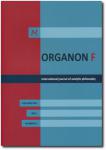The Semantics of Empirical Unverifiability
The Semantics of Empirical Unverifiability
Author(s): Igor SedlárSubject(s): Epistemology, Logic
Published by: SAV - Slovenská akadémia vied - Filozofický ústav SAV
Keywords: Completeness; epistemic logic; knowability; verifiability;
Summary/Abstract: Pavel Cmorej has argued that the existence of unverifiable and unfalsifiable empirical propositions follows from certain plausible assumptions concerning the notions of possibility and verification. Cmorej proves, it the context of a bi-modal alethic-epistemic axiom system AM4, that (1) 𝑝𝑝 and it is not verified that 𝑝𝑝 is unverifiable; (2) 𝑝𝑝 or it is falsified that 𝑝𝑝 is unfalsifiable; (3) every unverifiable 𝑝𝑝 is logically equivalent to 𝑝𝑝 and it is not verifiable that 𝑝𝑝; (4) every unverifiable 𝑝𝑝 entails that 𝑝𝑝 is unverifiable. This article elaborates on Cmorej’s results in three ways. Firstly, we formulate a version of neighbourhood semantics for AM4 and prove completeness. This allows us to replace Cmorej’s axiomatic derivations with simple model-theoretic arguments. Secondly, we link Cmorej’s results to two well-known paradoxes, namely Moore’s Paradox and the Knowability Paradox. Thirdly, we generalise Cmorej’s results, show them to be independent of each other and argue that results (3) and (4) are independent of any assumptions concerning the notion of verification.
Journal: Organon F
- Issue Year: 22/2015
- Issue No: 3
- Page Range: 358-377
- Page Count: 20
- Language: English

